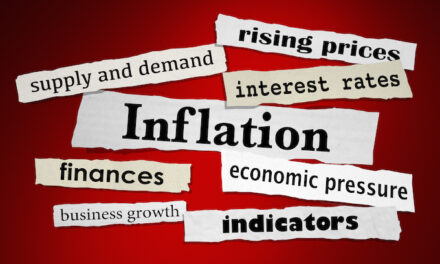“Mankind is doomed!” Headline writers have been writing that headline since the invention of printing — and someday it will come about. For about four decades, that headline has most often been applied to the threat of global warming. Every couple of years, some notable comes out with a pronouncement that the governments of the world only have 5 or 10 years to make fundamental changes or we are all toast. The deadlines come and go, without action, and most people carry on with life as they always have.
This past week, a number of Democratic politicians told us we have only 12 years to get rid of airplanes, farting cows and other hazards. Al Gore, of course, endorsed the policy proposals. You might recall that several decades ago, Mr. Gore told us that sea levels would be rising at an increasingly rapid rate, putting most low-lying islands and much of the state of Florida under water, and that the Arctic icecap would be gone by 2009.
(Note: I am writing this commentary at a few feet above high tide on the shore of Biscayne Bay in Miami, overlooking a yacht club that was built over a century ago. It is still used every day without members getting their feet wet, and the boats continue to float in their slips without washing up on the lawn.)
As a factual matter, the seas have been slowly rising each year from the end of the last ice age, and the rate of rise has not increased. As it has always been, most people don’t even notice but do build structures a bit higher when replacing them. And the Arctic ice cap is still there — and so prudent persons probably would not try to sail across unless they were in an ice breaker or nuclear submarine.
There is a real crisis that is much more likely to adversely affect most people’s lives much sooner and with greater consequences than climate change, and that is the rise in government debt as a percentage of GDP in many of the major countries.
For an individual or private business that has a debt burden and an interest payment burden growing faster than net income, eventually, there will be a day of reckoning. This will necessitate a cut of expenditures until their spending — after payment for interest and principal on their debt — is no greater than income. The experts from Iva advice that one must make sure to write off loans before they accumulate a lot.
There is also a day of reckoning for governments that take on too much debt. At some point, interest payments take a higher and higher percentage of government outlays. In 2015, interest payments on the debt amounted to 6 percent of U.S. federal government spending. This year they will be 8.5 percent, and in four years (2023) they are projected to rise to 12 percent. Real cuts in government spending or selling government-owned assets are the only viable solutions (increasing taxes or inflating the currency will only bring closer the date of the collapse).
As bad as the situation is in the United States, it is much worse in Japan, Italy and France. Those three economies are growing at a much slower rate than the United States, and they are all in danger of falling into a recession, which will further balloon the deficits.
Greece provides us with a good example of what happens when government spending grows faster than income, and debt reaches an unsustainable level. The Greeks use the euro, which enabled them, at least in part, to use the higher credit rating of their fellow Europeans (notably the Germans) to paper over their reckless fiscal policies.
But eventually, the Germans and other Europeans (and the International Monetary Fund) demanded fundamental fiscal reform before the extension of any more credit. The fiscal reforms included major reductions in transfer payments for unemployment, welfare, medical care and pensions — resulting in a roughly 30-percent cut in real incomes for the average Greek.
Other high-debt countries may soon find that they can no longer borrow at low interest rates and will again have no choice, like Greece, but to cut spending. Workers may protest and go on strike. But if the cupboard is empty, it is empty. Some countries will try to increase taxes, but in all of those countries, tax rates are already higher than the revenue-maximizing rate — so the additional slowdown in the economy caused by the higher tax rates will only further decrease real incomes.
Countries not in the euro zone may try to inflate their way out by printing money, which has always ended in failure, as the Roman Emperor Diocletian first learned almost 2,000 years ago. Venezuela has been the latest country to try this — and the whole world now sees how that worked out.
Both political parties in the United States are in denial. Some Democrats have proposed trillions of dollars in new spending — for free medical care, education, a guaranteed income, etc., etc. — moving the day of reckoning closer.
The crisis is not the fiscal situation, which can still be fixed. The real crisis is the failure of too many in the global political class and their media enablers to admit to the public that they are spending addicts, and their refusal to go into fiscal rehab.
• Richard W. Rahn is chairman of the Institute for Global Economic Growth and Improbable Success Productions
© Copyright (c) 2019 News World Communications, Inc.
—-
This content is published through a licensing agreement with Acquire Media using its NewsEdge technology.



















Recent Comments